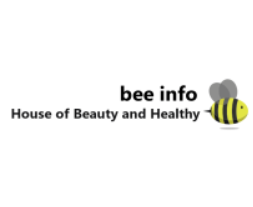Becoming a nurse means committing yourself to providing a high level of care for your patients. This commitment includes learning everything there is to know about patient care and furthering your education so you can move forward in your career. When junior nurses start working in a hospital ward or clinic, it can be overwhelming learning the procedures in their departments. Nurses need to have specific skills when it comes to patient care. These may include soft skills and hard skills such as applying ethical and theoretical practices in their daily duties.
The following paragraphs explain some applications of hard and soft skills in nursing.
Application of ethics in nursing
The nursing code of ethics details how to carry out the responsibilities of a nursing professional and guides those individuals in their endeavours. There are four main principles in the nursing code as listed below:
- Beneficence – this is charity and kindness. Beneficence requires action by nurses to benefit others without any personal gain. Holding the hand of someone who is dying to give them comfort is an example of beneficence.
- Autonomy – this is the knowledge that every patient has the right to dictate their own care and should be allowed to do so with as much knowledge as possible. It is not up to the nurse to make the decision for the patient.
- Justice – this means being impartial and fair in dealing with patients and being impartial with each patient despite economic status, ethnicity, sexual orientation or other biases.
- Non-maleficence – this means providing the best standard of care and never willfully harming any patient.
These principles may be touched on briefly during the theoretical phase of getting your nursing degree, but they are the binding principles that every nurse must follow in daily practice. According to the American Nurses Association, the code of ethics is a guide for “carrying out nursing responsibilities in a manner consistent with quality in nursing care and the ethical obligations of the profession.”
Application of the nursing process in nursing
Nurses must follow a set of guidelines called the nursing process which is a method for creating and implementing patient care plans in the field. This process differs from the scientific method in that it entails perception and intuition as opposed to the empiricism of the scientific method. The nursing process is part of the curriculum of accredited online courses such as University of Indianapolis’ MSN-AGNP online program. Furthering your education online will give you the opportunity to take the necessary courses part-time while still being able to work.
The nursing process includes:
- Assessment– this part of the process uses dynamic ways to collect data from the patient and analyze it. The assessment is the first step in creating a comprehensive care plan. It includes data on psychological, physiological, spiritual, economic, sociocultural and lifestyle factors of the patient.
- Diagnosis– the diagnosis is made up of the nurse’s clinical opinion of the patient’s responses to health conditions and needs. The diagnosis will indicate the symptom like the patient is in pain, as well as detail what is causing that pain. An example of this would be if the patient has a vitamin deficiency caused by a poor diet. The diagnosis and subsequent care plan would involve these facts.
- Outcomes and planning– with the assessment and diagnosis squared away, the nurse will then set an achievable plan of action with long- and short-range goals that will benefit the patient and help alleviate the symptoms. One plan could be to maintain adequate nutrition by eating well-balanced and healthy meals throughout the day with some vitamin supplements. Counseling on proper nutritional habits and a schedule of check-ups to monitor the deficiency could also be part of the overall healthcare plan. The nurse may also provide details on community programs that can help or in-home care services.
- Implementation– care is implemented according to the healthcare plan along with continuous support throughout the hospital stay and after discharging the patient. The care is documented in the patient’s chart and there is a program for follow-up calls or in-home visits should they require it.
- Evaluation– the care plan means nothing if it doesn’t serve the purpose for which it was designed and if the patient is not getting any benefit from it. In this stage of the process, the plan is kept as is, or changed to meet the needs of the patient. This modification could mean extra care if the patient relapses, or a gradual cutting back on care if the plan is effective.
Application of theory
Nurses were once seen as strictly task-oriented individuals who were trained by doctors. Nowadays, the nursing profession has evolved into a multi-faceted discipline that requires both hard and soft skills, advanced education, and a theoretical component.
Nursing theory has advanced the profession in the following ways:
- It has helped nurses understand their role when it comes to patient care in a healthcare setting.
- Nurses understand their contribution and priority when dealing with patients.
- Encourages development of knowledge and furthering education.
- Guides education, practice, and research.
- Lays out the definition of nursing and recognizes the foundations of this important vocation.
- Gives nurses the knowledge to act and respond appropriately tohealthcare emergencies .
- Serves as a rationale for nursing interventions.
- Details the foundations of the nursing profession.
- Provides a guide forfuture development of the nursing profession.
- Provides nurses with a sense of identity and purpose.
- Sheds light on the invaluable contributions nurses make in the healthcaresystem as part of an effective medical team.
- Prepares future leaders in nursing by allowing them to reflect on their contributions and further define theirrole within the healthcare community.
- Guides thenursing profession into an era of professional integrity and preserves the limits and boundaries that exist in nursing today.
When you pair these hard skills with soft skills and apply them to your nursing career, you will see the improvement in your relationships with your colleagues, your patients and the rest of the medical team.

